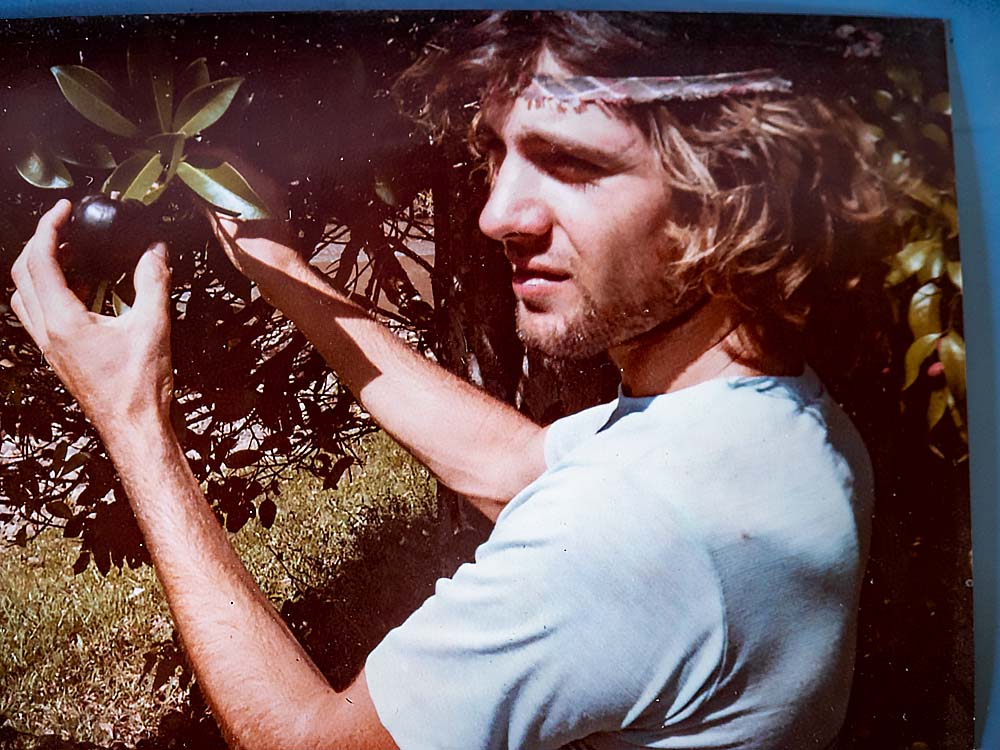The Quest for Spiritual Revitalization
The initial impetus for exploring new religious movements emanated from a yearning for an authentic spiritual experience. In 1983, I deferred my diploma in horticulture to engage in organic farming, a decision influenced by a burgeoning skepticism among a subset of students. This skepticism questioned the sustainability and ethical implications of conventional agricultural practices, particularly the use of pesticides, fertilizers, and machinery. My involvement in this movement was not merely ecological but also ideological, resonating with libertarian artistic principles. This led me to join the Australian WWOOFER association, thereby embarking on a journey of self-discovery.
Encounters with Social Saturation
Upon relocating from Far North Queensland to Brisbane, I found myself plunged into a kaleidoscope of subcultures—ranging from punk and hippie to subdued goth. This exposure destabilized my previously stable identity as a small-town, rural individual named Italo. The city of Brisbane was in a state of ideological flux, emerging from the somnolent decades of the Joe Bjelke-Petersen era. In alignment with this zeitgeist, I too underwent a nominal transformation, adopting a poetic variation of my middle name, Nicola. This identity shift was catalyzed by a life-altering rugby incident that resulted in a fractured upper spinal region, compelling me to wear a neck brace.
The Epiphany of Mindfulness
During this period of physical immobility, I delved into esoteric and numinous literature. A serendipitous encounter with a student practicing Theravada Buddhism introduced me to the concept of impermanence, which resonated deeply given my physical condition. This experience served as a gateway to my subsequent affiliations with various new religious movements.
Navigating Rapid Social Change
The dislocation from the wet tropics to other parts of Australia marked a significant shift in my life. My earlier identity, rooted in a bucolic setting where my father was an orchardist and my mother a primary school teacher, was suddenly juxtaposed against a backdrop of subcultures, academic rigor, Eastern meditation practices, and personal injuries. This period of rapid transformation was punctuated by a moment of revelation on the Gold Coast.
Embracing Raja Yoga: A Return to Authenticity
While cycling along the highway at Broadbeach, I stumbled upon a center offering a course in Raja Yoga. The ambiance of the center, coupled with its pedagogical approach, evoked a sense of authenticity that I found reminiscent of my earlier, simpler life. The cosmological elements of the course, particularly the concept of a cosmic cycle leading to a golden age, captivated my imagination. This led me to become an active member of the Brahma Kumaris, marking the commencement of my lifelong journey as a Raja Yogi.
In summary, my quest for authenticity has been a complex interplay of ecological activism, identity transformation, spiritual exploration, and sociocultural adaptation. Each phase has been instrumental in shaping my evolving understanding of self and society, guided by a constant yearning for an authentic spiritual experience.
Objective analysis of key turning points which influence an ethnographic artistic identity formation.
The author’s motivation to join the new religious movement was primarily driven by a search for authenticity and a means of revitalizing the spirit. They were seeking a genuine and transformative experience. Additionally, the author had deferred their diploma in horticulture to participate in the production of organic produce, which led to a growing unease within a small cohort of students about farming practices. This desire for radical change and activism also played a role in their decision to join the new religious movement. The author’s encounters with various sub-cultures and the rapid social change they experienced in Brisbane further contributed to their exploration of new religious movements.
The author encountered a plethora of subcultures in Brisbane, including Punks, hippies, and subdued Goths. These subcultures had a dizzying impact on the author’s sense of identity.
The significance of the author changing their name in reflection of the city’s libertarian ideals was a way for them to align themselves with the changing times and express their individualism. By updating their name to “ITALOZAZEN,” the author embraced the spirit of the rapidly transforming society of Brisbane and distanced themselves from their small town rural country ethnic identity. It was a symbolic gesture that represented their embrace of the libertarian ideals prevalent in the city at that time.
The author’s experiences in the new religious movement and in Brisbane played a significant role in shaping their identity as an artist. Joining the new religious movement provided the author with a sense of authenticity and revitalization, which influenced their search for meaningful experiences. This search for authenticity extended to their artistic pursuits, as they sought to express their individualism and explore different sub-cultures.
The diverse sub-cultures encountered in Brisbane, from punks to hippies, had a dizzying impact on the author and temporarily disrupted their sense of identity. This experience of floating free in a rapidly transforming society prompted the author to update their name to Italozazen, reflecting the changing times and their poetic inclinations.
Furthermore, the author’s engagement with philosophy, Eastern meditation techniques, and injury trauma during their time in the new religious movement contributed to their artistic development. These encounters expanded their understanding of different perspectives and ways of thinking, which likely influenced their artistic expression.
Overall, the author’s experiences in the new religious movement and in Brisbane provided them with a rich tapestry of influences, ideas, and encounters that shaped their identity as an artist.
